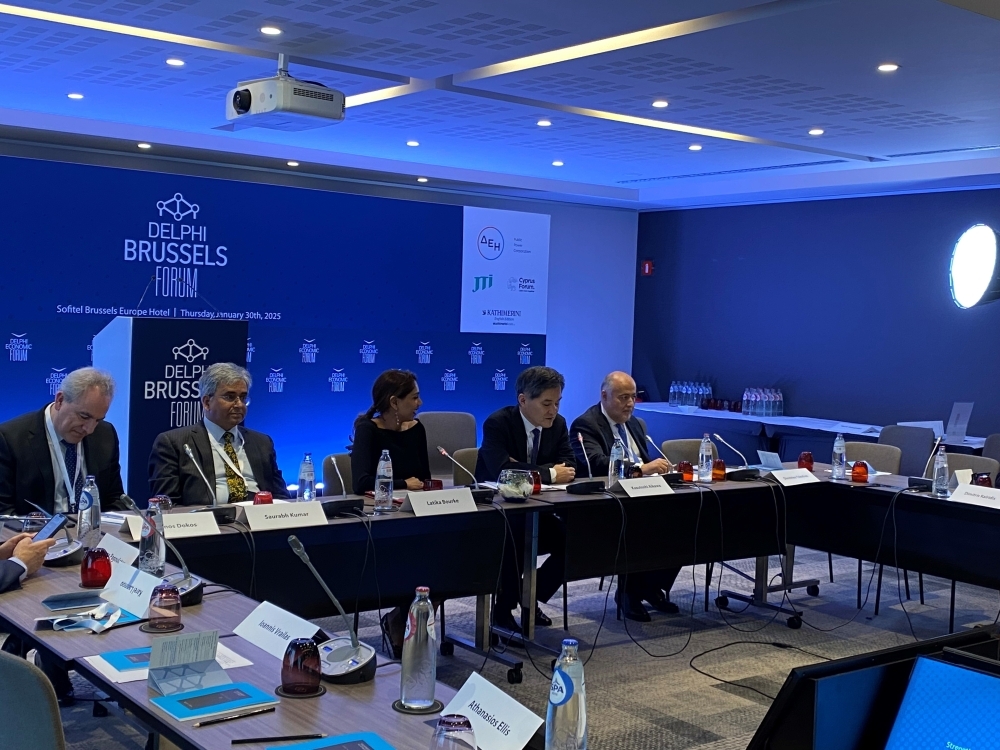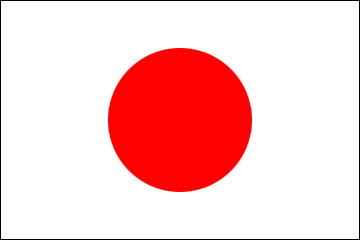Ambassador Aikawa's Remarks at the 3rd Brussels Delphi Forum
2025/1/30

Delphi Brussels Forum (30 th January, 2025)
First, my sincere thanks to the Delphi Forum for inviting me today. It is a pleasure to be here among such distinguished panelists, and I am especially glad to sit next to my good friend, Ambassador Kumar of India.
Just last week in Davos, the President of the European Commission outlined three key challenges for Europe: a) mobilizing household savings for innovation and risk-taking investment, b) cutting bureaucratic red tape, and c) ensuring energy security.
These are also challenges for Japan. We, too, have around $14 trillion dollar in household savings, that can be utilized for investment. Deregulation efforts through ministerial portfolio have continued more than 20 years and still on-going, and Japan’s continuing energy security concerns never ceases as a natural resource-scarce nation.
I strongly believe that Japan and the EU can better address these challenges by learning from each other and leveraging our shared experiences.
On the security front, Japan and the EU are working closer than ever. Prime Minister Shigeru Ishiba, like his predecessor, former Prime Minister Kishida, has often reminded us that "today’s Ukraine could be tomorrow’s East Asia."
Indeed, security challenges today are deeply interconnected. Russia’s recruitment of North Korean soldiers for the battlefield and the recent undersea cable disruptions in both Europe and East Asia demonstrate how security threats transcend regions.
With this conviction, Japan stands firmly with Ukraine, providing over $12 billion in aid, including support for electricity generation, housing reconstruction, and landmine-clearing efforts — critical to Ukraine recovery and reconstruction. In addition, Japan has contributed a $3.3 billion loan as part of the G7 package.
Meanwhile, in East Asia, the security landscape remains tense. Take maritime security: the East and South China Seas regularly witness provocations by Chinese ships aimed at changing the status quo by force. North Korea’s missile tests increasingly threaten not only the Indo-Pacific but also global stability.
Against those backgrounds, Japan and the EU recently signed the Japan-EU Security and Defense Partnership, strengthening cooperation in maritime security, cybersecurity, industry-to-industry collaboration, and intelligence sharing.
Economic security has become one of the pillars of Japan-EU cooperation. Building resilient supply chains for critical raw materials and reducing overdependence on a single country are key challenges we have been addressing together.
Climate action is another area of deep collaboration. Japan and the EU are natural partners in sustainability, and under the Green Alliance, we are advancing clean energy technologies such as hydrogen, carbon capture, and storage—at both government and private-sector levels.
On innovation, our cooperation is growing in cutting-edge fields such as 6G, quantum computing, and space exploration. Japan’s potential association membership with Horizon Europe could further strengthen our research ties.
I could go on, but I hope this gives you a sense of how deep and comprehensive the Japan-EU partnership truly is. Our collaboration is essential for strengthening the rules-based international order.
In these uncertain times, Japan and the EU have a shared responsibility to shape a secure, sustainable, innovative, and prosperous future—one founded on democracy, the rule of law, and human rights. Our partnership is not just mutually beneficial; it is essential and indispensable.
Thank you!
First, my sincere thanks to the Delphi Forum for inviting me today. It is a pleasure to be here among such distinguished panelists, and I am especially glad to sit next to my good friend, Ambassador Kumar of India.
Just last week in Davos, the President of the European Commission outlined three key challenges for Europe: a) mobilizing household savings for innovation and risk-taking investment, b) cutting bureaucratic red tape, and c) ensuring energy security.
These are also challenges for Japan. We, too, have around $14 trillion dollar in household savings, that can be utilized for investment. Deregulation efforts through ministerial portfolio have continued more than 20 years and still on-going, and Japan’s continuing energy security concerns never ceases as a natural resource-scarce nation.
I strongly believe that Japan and the EU can better address these challenges by learning from each other and leveraging our shared experiences.
On the security front, Japan and the EU are working closer than ever. Prime Minister Shigeru Ishiba, like his predecessor, former Prime Minister Kishida, has often reminded us that "today’s Ukraine could be tomorrow’s East Asia."
Indeed, security challenges today are deeply interconnected. Russia’s recruitment of North Korean soldiers for the battlefield and the recent undersea cable disruptions in both Europe and East Asia demonstrate how security threats transcend regions.
With this conviction, Japan stands firmly with Ukraine, providing over $12 billion in aid, including support for electricity generation, housing reconstruction, and landmine-clearing efforts — critical to Ukraine recovery and reconstruction. In addition, Japan has contributed a $3.3 billion loan as part of the G7 package.
Meanwhile, in East Asia, the security landscape remains tense. Take maritime security: the East and South China Seas regularly witness provocations by Chinese ships aimed at changing the status quo by force. North Korea’s missile tests increasingly threaten not only the Indo-Pacific but also global stability.
Against those backgrounds, Japan and the EU recently signed the Japan-EU Security and Defense Partnership, strengthening cooperation in maritime security, cybersecurity, industry-to-industry collaboration, and intelligence sharing.
Economic security has become one of the pillars of Japan-EU cooperation. Building resilient supply chains for critical raw materials and reducing overdependence on a single country are key challenges we have been addressing together.
Climate action is another area of deep collaboration. Japan and the EU are natural partners in sustainability, and under the Green Alliance, we are advancing clean energy technologies such as hydrogen, carbon capture, and storage—at both government and private-sector levels.
On innovation, our cooperation is growing in cutting-edge fields such as 6G, quantum computing, and space exploration. Japan’s potential association membership with Horizon Europe could further strengthen our research ties.
I could go on, but I hope this gives you a sense of how deep and comprehensive the Japan-EU partnership truly is. Our collaboration is essential for strengthening the rules-based international order.
In these uncertain times, Japan and the EU have a shared responsibility to shape a secure, sustainable, innovative, and prosperous future—one founded on democracy, the rule of law, and human rights. Our partnership is not just mutually beneficial; it is essential and indispensable.
Thank you!
